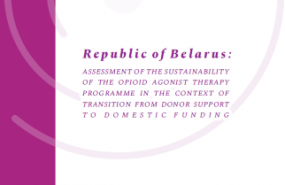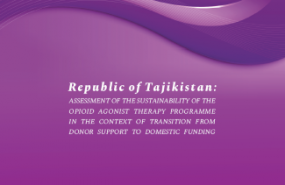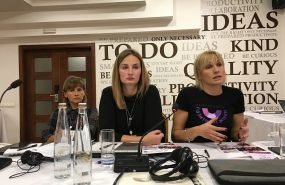Developing the capacity of CCM members representing civil society in Central Asia: a two-day workshop took place in Almaty, Kazakstan
- 19.02.2019 10:50
- Post Views: 1,989
The workshop brought together more than 40 participants, including all CCM members from the identified countries, representing non-profit organizations and communities, as well as a number of speakers and experts.
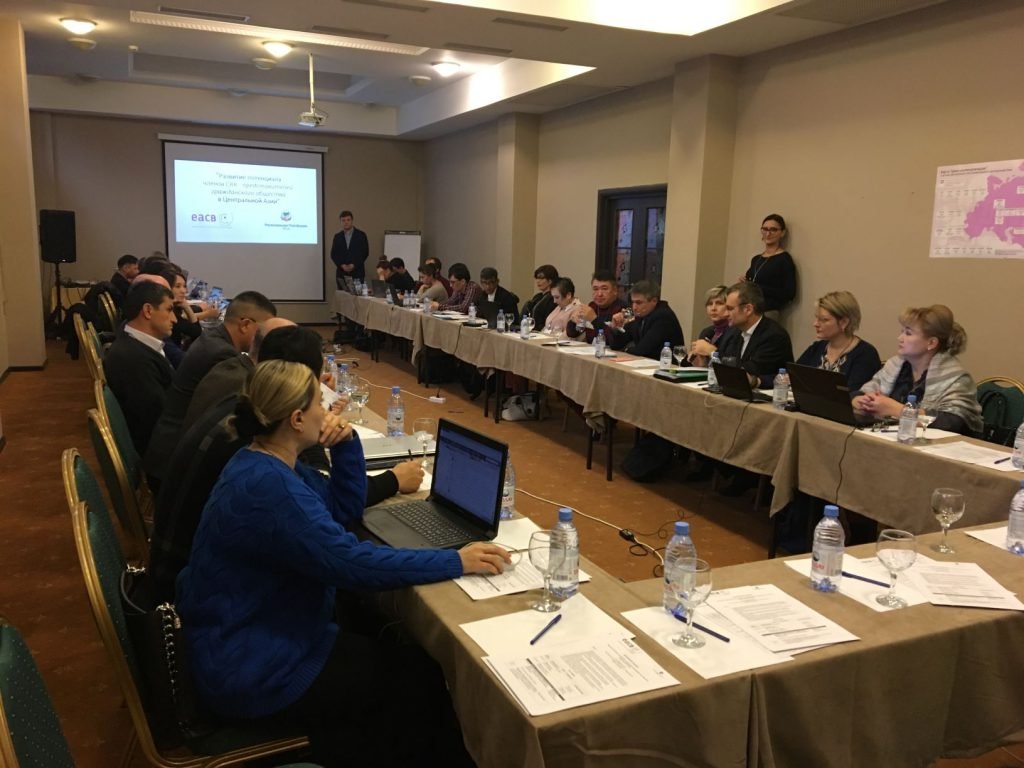
CCMs play a vital role in the transition-related processes taking place in middle-income countries (MICs) implementing Global Fund grants. However, a February 2016 audit of CCMs performed by the Office of the Inspector General (OIG) revealed several key weaknesses related to the CCM’s oversight, consultation and feedback functions. The audit also raised specific concerns about the limited sustainability of CCMs in countries where the Global Fund has already transitioned out of funding disease programs. Without sustainable CCMs, this might adversely impact advocacy for the three diseases, resource mobilization, and continued meaningful engagement of civil society and affected communities in those countries post-transition.
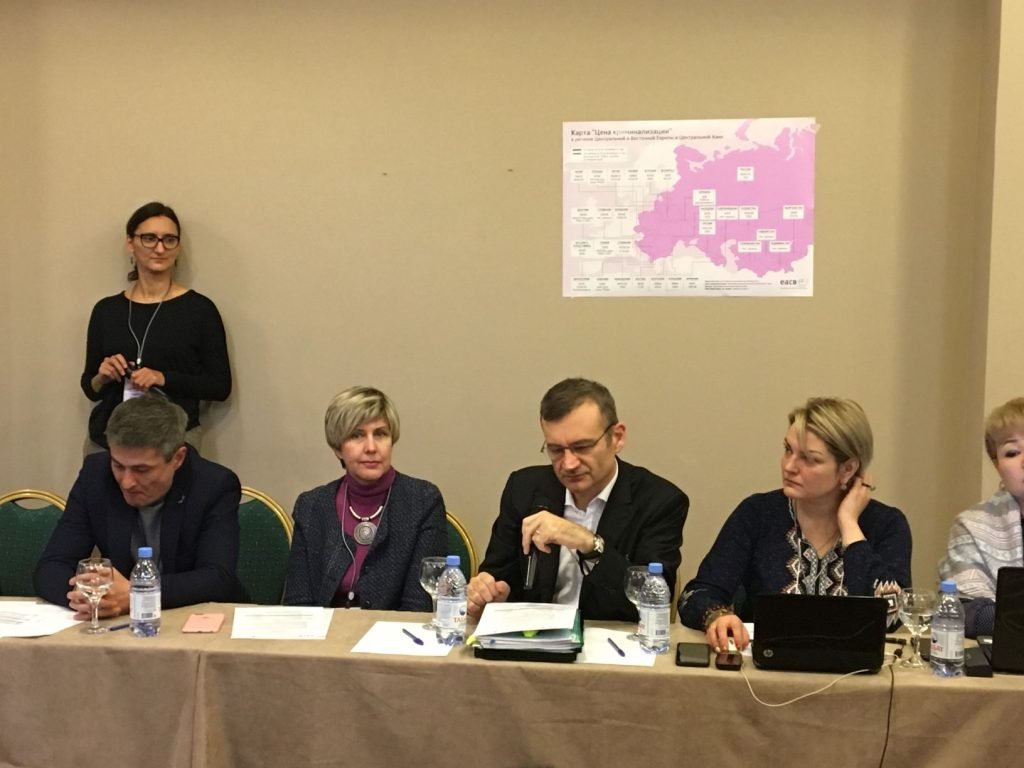
As such, continuous efforts are needed to build the capacity of CCM members, particularly those representing the non-governmental sector (including people living with and/or affected with the disease), raise their awareness about the importance of their role within transition-related processes taking place in their countries, and ensure their meaningful involvement into these processes at all stages of the transition.
During the workshop the participants had an opportunity to update the knowledge of non-governmental CCM members about the Global Fund, its structures, mechanisms and current processes, important for the EECA region; to improve the understanding of the participants of the CCM’s functions and their role as representatives of the non-governmental sector on the CCM; to exchange experiences, share lessons learned, and discuss good practice approaches for improving the impact of civil society within the CCM; to enhance participants’ understanding of the importance of the transition processes taking place in their countries and the importance of their role as non-governmental CCM members in such processes; and to learn more about the technical assistance opportunities that are available to support non-governmental CCM members to better fulfil their role and strengthen the work of CCMs in their countries.
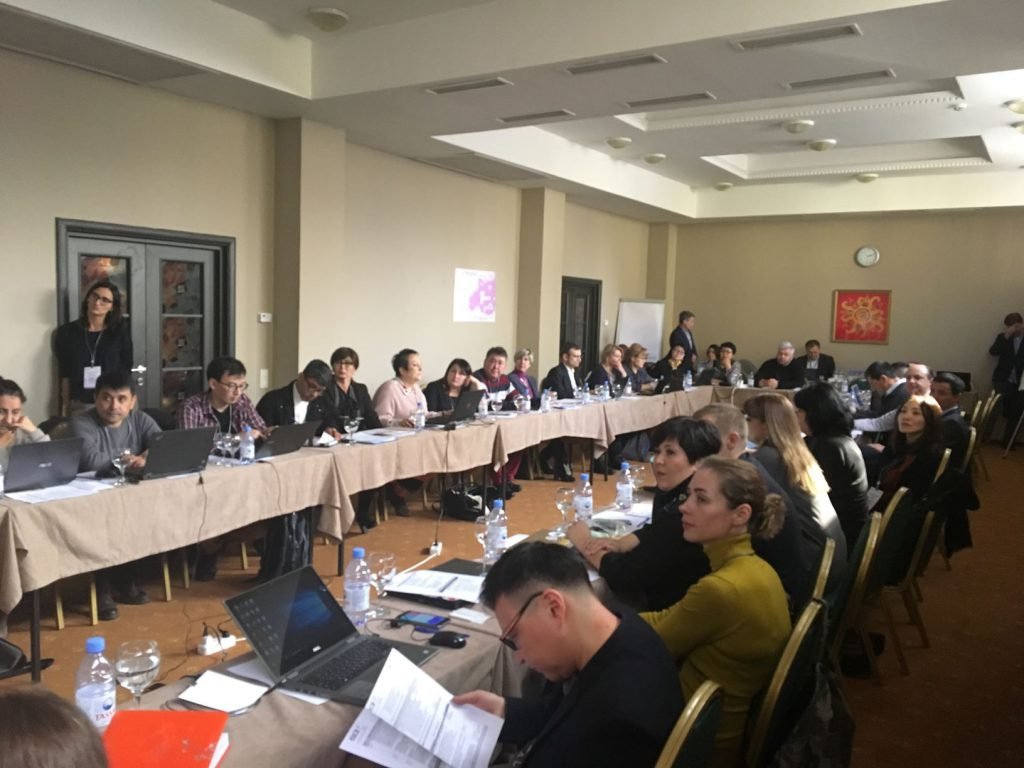
Dumitru Laticevschi, Regional Manager in EECA, presented key information on the Global Fund, CCM and CCM evolution at the seminar. Mr. Laticevschi answered a huge number of questions from the participants, explaining the possibilities of the Global Fund Secretariat to interact with national grants, CCMs, principal recipients and other country partners. Great interest was aroused by the presentation on the Delegations to the Global Fund Board, presented by Ivan Varentsov, EHRA, since, for example, it is through representatives in the NGO Delegation of developing countries that the voice of the region can be heard by the Global Fund Board.
Another important presentation on the experience of implementing state social contracting in Belarus was presented by Valery Zhurakovsky from NGO “ACT”. After a long period of development and coordination, civil society in Belarus managed to achieve the introduction of legislative changes that were so necessary during the transition, which in its turn contributed to the involvement of non-profit organizations in the provision of services to key populations in the framework of the state program on HIV. This experience aroused great interest among the seminar participants and can be applied in the countries of Central Asia.
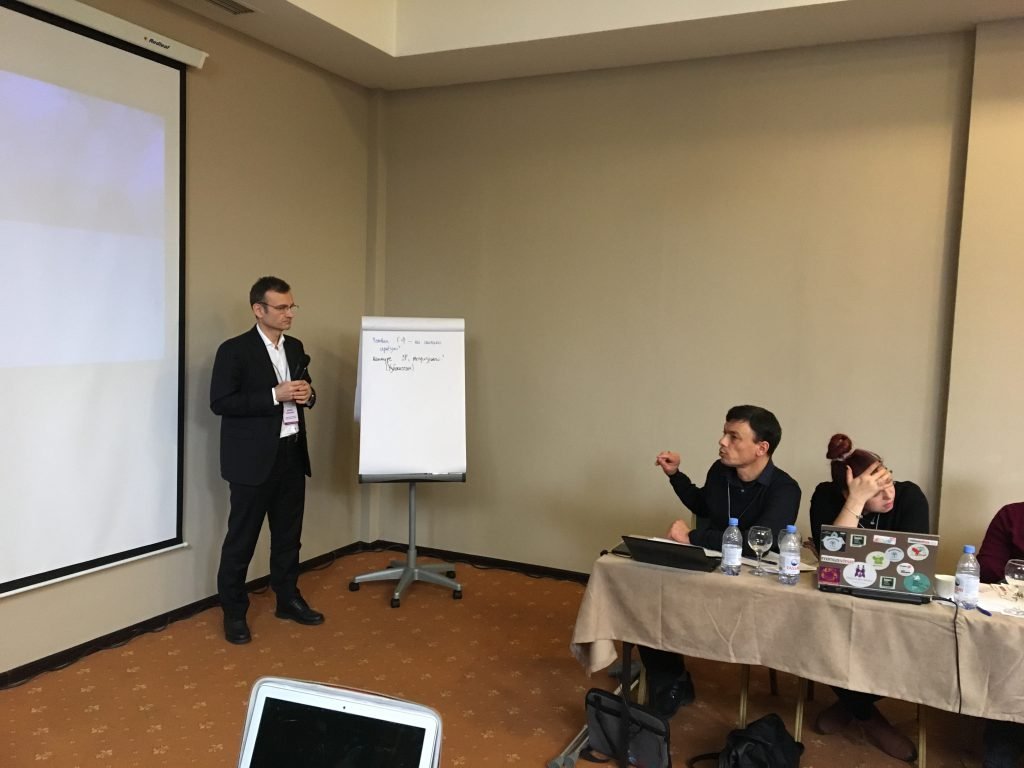
The workshop organizers used the opportunity of holding an event in Almaty and invited to a special session about the prospects of different sectors to increase the influence of NGOs and communities the representatives of public institutions of Kazakhstan and international organization. Irina Petrenko, Deputy Director of the Kazakh Scientific Center for Dermatology and Infectious Diseases, Shakhimurat Ismailov, Director of the National Scientific Center for Phthisiopulmonology, Alexander Goliusov, Director of the UNAIDS Office in Kazakhstan and Nurali Amanzholov, President of the Central Asian Association of People Living with HIV shared their opinions with the workshop participants on the role of NGOs and communities in the CCM, and the overall impact of the civil society on country processes in the field of HIV and TB prevention and treatment. The speakers talked about lessons learned in Kazakhstan, factors contributing to success and limiting opportunities for influence, and also shared advice on improving interaction between sectors.
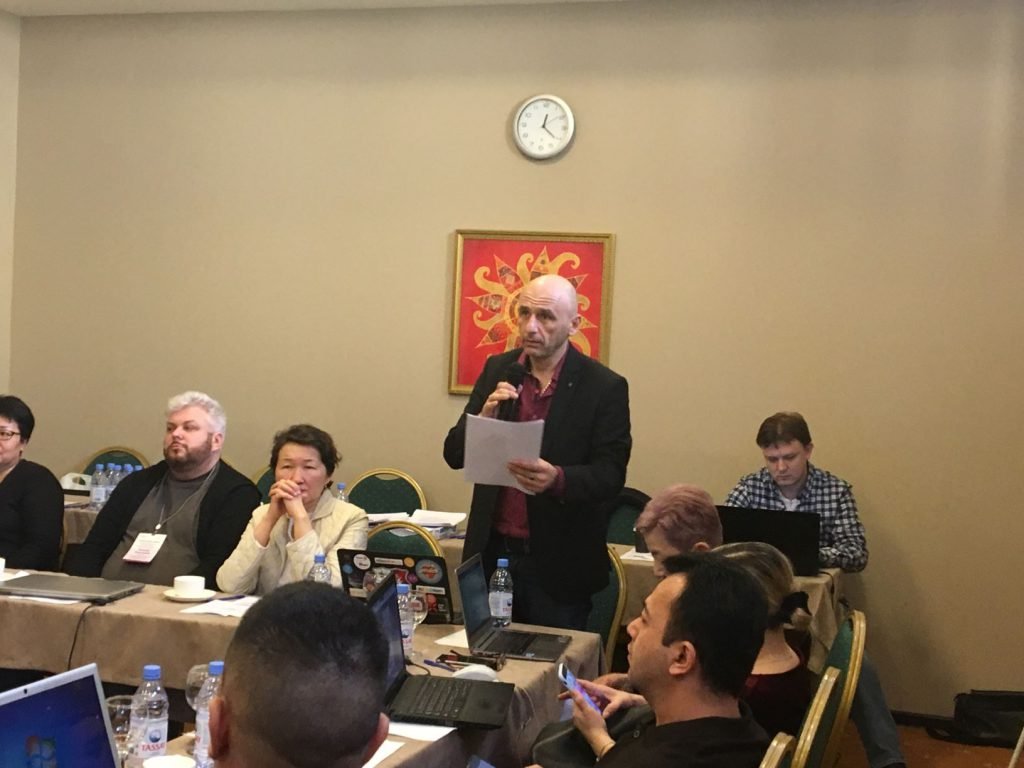
The workshop presented opportunities for technical support for the civil society organizations to implement their projects. In particular, the Global Fund’s Community, Rights and Gender Technical Assistance Program, the Health Policy Plus project, USAID and GIZ technical assistance under the BACKUP Health initiative, the new round of which will be available for submission of applications in 2020, were presented. As a result of the workshop, many participants have planned to submit applications for technical assistance from regional partners.
An integral part of the workshop was the discussions of participants, questions and group work, in which country delegations tried to identify the most important problems for the country’s civil society in the context of the state of the epidemics, current policies, transition processes, access to services and the state of the civil sector itself, as well as outline the next steps that CCM members can take to resolve the issues identified.
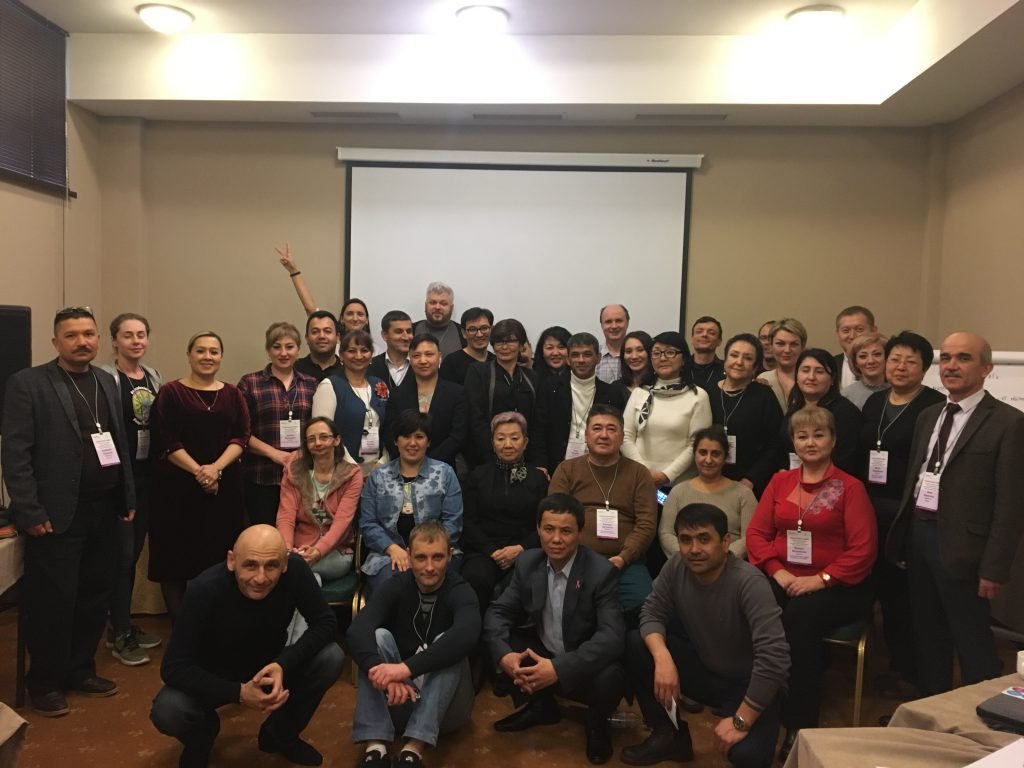
Seminar materials are available here.
A report on the results of the event is available here.
Related News
Аssessment of the sustainability of the opioid agonist therapy programme in the context of transition from donor support to domestic funding in Belarus
This assessment has been initiated by the Eurasian Harm Reduction Association to assess the progress in reaching sustainability of the opioid agonist therapy (OAT) programme in the Republic of Belarus in the context of transition from donor support to domestic funding. The sustainability assessment of the OAT programme in the Republic of Belarus in 2020 was […] Read moreАssessment of the sustainability of the opioid agonist therapy programme in the context of transition from donor support to domestic funding in Tajikistan
This assessment has been initiated by the Eurasian Harm Reduction Association to assess the progress in reaching sustainability of the opioid agonist therapy (OAT) programme in the Republic of Tajikistan in the context of transition from donor support to domestic funding. Post Views: 867 Read moreEHRA within its EECA Regional Platform has organized a Regional Working Forum to discuss the availability and provision of Global Fund-related Technical Assistance for CSOs and communities in the EECA region
The Eurasian Harm Reduction Association (EHRA) hosts the EECA Regional Platform for Communication and Coordination since December 2017. Post Views: 1,972 Read moreServices for migrants and refugees from Ukraine – HIV/TB care with a focus on key populations
Due to the increasing flows of refugees from Ukraine because of Russia’s invasion of Ukraine, the EECA Regional Platform created a spreadsheet to fill contacts details of face-to-face and online services for refugees and migrants (with a focus on HIV/TB care and key population groups).
Regional Platform – EECA
This web-resource is a part of new regional communication and coordination project “Regional Civil Society and Community Support, Coordination and Communication Platform - EECA”, implemented by Eurasian Harm Reduction Association (EHRA).
Tags
See also
-
Webinar: Using Global Fund's Data for Advocacy 12.06.2025 12:00
-
GC7 Grant Reprioritization: Updated Timelines 10.06.2025 14:37
-
GFAN reports back: 53rd Global Fund Board meeting 26.05.2025 14:26



